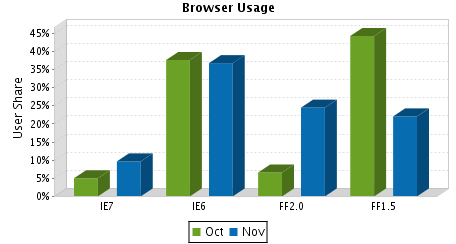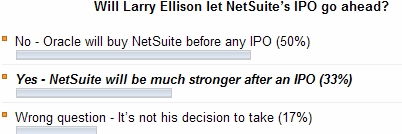 24SevenOffice, the European SaaS provider of an integrated, All-In-One system for small businesses may be in acquisition talks with a major US vendor. The news went almost unnoticed, partly because it leaked just before Christmas, partly because the company is largely unknown outside a few European countries – not for long if a deal comes through.
24SevenOffice, the European SaaS provider of an integrated, All-In-One system for small businesses may be in acquisition talks with a major US vendor. The news went almost unnoticed, partly because it leaked just before Christmas, partly because the company is largely unknown outside a few European countries – not for long if a deal comes through.
I covered 24SevenOffice, a very promising SaaS provider for the SMB (SME) market several times. Their system is modular but integrated with a breath of functionality I simply haven’t seen elsewhere: Accounting, CRM (Contacts, Lead Mgt, SFA), ERP (Supply Chain, Orders, Products, Inventory), Communication, Group Scheduling, HR, Project Management, Publishing, Intranet. Essentially a NetSuite+Communication and Collaboration.
About the only thing I did not like was the lack of availability for US customers – this might change soon. The news release and blog post mentions three names: Salesforce.com, WebEx and Google, but adds a somewhat cloudy remark: “the companies here are only examples of what the rumors have outlined.” It does not explicitly confirm one of these specific companies as the potential buyer. I should also add that while I had in the past been in touch with Management, at this time I have no information whatsoever from the company, so the ideas below are purely my speculation.
Salesforce.com as suitor: A well-integrated All-In-One product would come handy to Salesforce.com which could dramatically expand their customer base this way. However, they’ve gone a long way in the other direction, trying to become a platform and extending their reach via the ecosystem built around the AppExchange. Acquiring 24SevenOffice would be a huge about-face for Marc Benioff, and essentially would mean admitting that archrival Zach Nelson of NetSuite was right all this time about the superiority of the integrated All-In-One approach.
WebEx: Their original market, the web conferencing space is being commoditized, they clearly are looking for more lucrative markets, as evidenced by the recently launched WebEx Connect (their “AppExchange”). I haven’t heard about much activity since the announcement – certainly owning a product like 24SevenOffice (btw., it really should be called 24SevenBusiness) would allow WebEx a powerful entry into the SMB applications market.
Google: No way, you might say. Google and business process / transaction oriented software are lightyears apart – at least today.
Yet unlikely as it sounds the deal would make perfect sense. Google clearly aspires to be a significant player in the enterprise space, and the SMB market is a good stepping stone, in fact more than that, a lucrative market in itself. Bits and pieces in Google’s growing arsenal: Apps for Your Domain, JotSpot, Docs and Sheets …recently there was some speculation that Google might jump into another acquisition (Thinkfree? Zoho?) to be able to offer a more tightly integrated Office. Well, why stop at “Office”, why not go for a complete business solution, offering both the business/transactional system as well as an online office, complemented by a wiki? Such an offering combined with Google’s robust infrastructure could very well be the killer package for the SMB space catapulting Google to the position of dominant small business system provider. Who’d benefit from such a deal? Google, millions of small businesses, and of course 24SevenOffice.
I admit I would feel somewhat sorry for 24SevenOfice though, as I clearly think they could have a shot of becoming a billion-dollar business on their own – the next NetSuite. Either way, if they make it to the US market this year, they’ll likely see explosive growth. When they are a well -known brand, remember, you discovered them here.

 (Updated)
(Updated)
 ). Clearly, the majority of new IE7 users are not IE6 upgraders, they came from the Firefox camp.
). Clearly, the majority of new IE7 users are not IE6 upgraders, they came from the Firefox camp.


 … but Joe Kraus, having sold Jot$pot to Google. The source was credible but of course we had already heard about a Yahoo acquisition, then eBay .. so who knows, after all.
… but Joe Kraus, having sold Jot$pot to Google. The source was credible but of course we had already heard about a Yahoo acquisition, then eBay .. so who knows, after all. – now let’s look at what Google should do with JotSpot.
– now let’s look at what Google should do with JotSpot.

Recent Comments